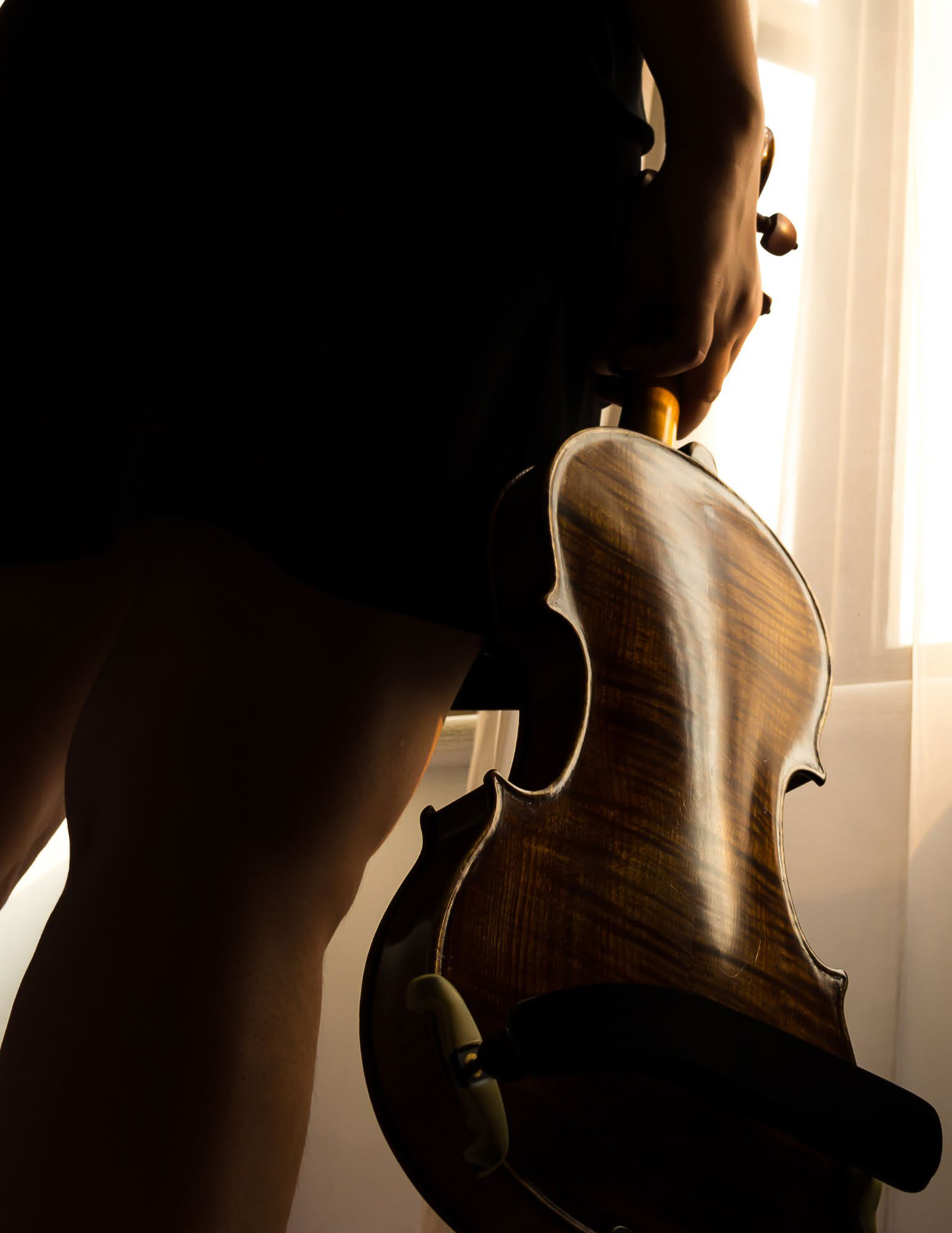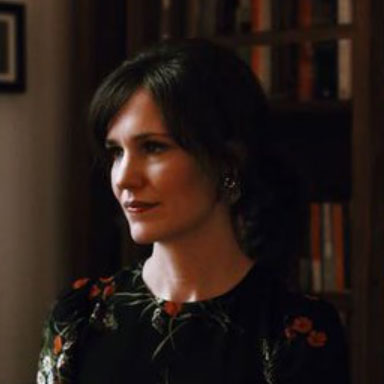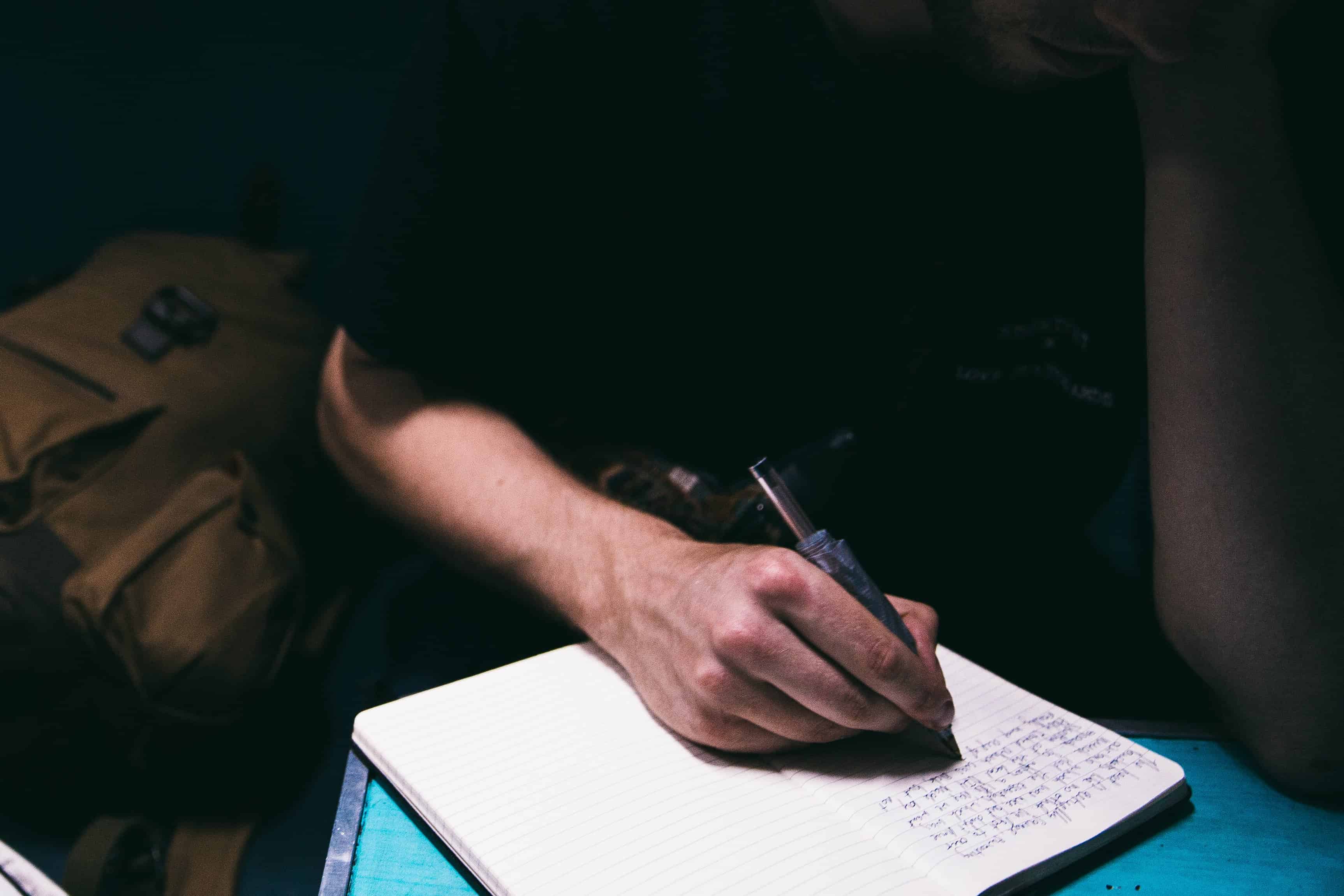Irish Exit
– Nonfiction by Alexis MacIsaac –

If I wanted to, I could have traced the constellation of Orion along Danny’s freckles. His face more immediate than the stars in the night sky, though it took me some time to get close enough to see.
I first found him when he was eighteen, possessed of the stature unique to young men in their prime, who think the world a canvas of possibility. I was a child then, only eleven, and like most children, detached from the secret lives of older people, still governed by a simplicity in thought. I did not have the experience to understand that he might leave an indelible mark. That he might have the power to brand my soul.
The first time I heard him play violin was in a cheap place with low light fixtures, awash with dry heat and the smell of weak coffee. I had watched him from the back of the room as his music sent silence sweeping across the hall. When it ended, Danny didn’t smile or take a bow. He kept his instrument clutched to him as if it were a piece of armor, as if it might shield him from something ugly. And I remember thinking afterward that I wanted to learn how to play like that. I wanted to know how to capture a room.
Before we were friends, I used to listen to people speak of Danny with a mixture of awe and sympathy. Awe because he was prodigious and obsessed. Sympathy because Danny had experienced something he shouldn’t have. My mother told me this one afternoon as we drove along a barren country road to my weekly lesson. “Just a kid when his mother died. Twelve, I heard.” I remember the rain battering the windshield, the soft, ineffectual swish of the wipers. The picture of him as a young boy, standing by his mother’s casket, fists clenched in the callous silence. My mother glanced at me. Now, I understand she was trying to gauge whether I understood the gravity of what she’d said. But I hadn’t really. I understood it only abstractly, that it was awful, but it was an awfulness I couldn’t fathom. Grief, I would later learn, is a lonely place to inhabit.
As I grew older, crossing that nebulous threshold from childhood into adulthood, Danny began to notice me in the way that I had noticed him; a cautious friendship between a sixteen-year-old girl who knew little beyond her selfish ruminations and a twenty-three-year-old man who had already begun to flounder in secret.
I found him once backstage at a concert, teaching a little girl with a strawberry-blonde bowl cut, his knees on the dirty tile so that she could play music with him, eye-level. And then he glanced up, at me, and he smiled like he was so glad I was there, and when he did, it was as if the world began to spin a little faster.
“You should be a musician when you grow up,” he used to tease.
“And what about you?”
“Don’t worry about me.”
I didn’t worry about him then. It was blissful, not worrying, back when I thought there was nothing to worry about, listening to his gravelly voice talk about the present, the future, never the past.
“We could go to Ireland together one day,” he said once. “We could find the best sessions and travel around. Learn from the masters.”
“We could.” But I never really believed him, even though I wanted to.
Our collisions later became more frequent, more deliberate. At his home, while his dad roasted a turkey and boiled carrots in the kitchen, we looked through old photos in his living room.
“Don’t look at that one,” he said, before snatching a print from my hand.
But I had seen the snapshot, of him sitting shirtless by a glassy lake. He looked away, his face flushed, and then I flushed, confused by what just happened, because I knew only that I had found something that wasn’t meant for me. Then he began to rummage through a pile, eventually pulling out a large portrait of a woman I’d never seen before. Her letterbox mouth almost smiled.
“My ex,” he said. And then he laughed so hard he snorted. “Unsolicited. What am I supposed to do with it?”
“Frame it,” I remember saying.
On a brittle day in March, at a pub that served flat soda, we played music for our ears only.
“How about a waltz?” I asked.
He laughed a bit, so that his freckles lifted.
“You know I don’t do slow.”
“Something else then. An original.”
He launched into a reel in A major. A cheery key.
When he had finished, I asked what it was called.
“The Reprobate.”
“What’s a reprobate?”
He blinked then glanced at the floor.
“Me.”
I looked up the word in the dictionary when I got home.
A depraved, unprincipled, or wicked person. A person rejected by God and beyond hope of salvation. Danny the reprobate. Danny my friend. It was at this time that sorrow had begun to claw at him, an invisible, insidious creature, any time he tried to catch his breath. I pretended not to see.
On the last night we spoke, we travelled in a storm. Snow pummeled, leaden, whitewashing everything under the vanishing sky. But I felt safe in the car, warmed by the heat that seeped from the vents and the cold smell of him. “You’re too young for me,” he said, looking straight ahead. My neck grew hot, embarrassed that he knew I had a crush.
“I know that.”
He glanced at me before setting his eyes back toward the road. He said, “You don’t understand.”
“What don’t I understand?”
He laughed.
“You’re unspoiled.”
“What are you?”
“Unwanted. Outcast from life’s feast.”
“Who came up with that line?”
“Joyce.”
“He’s dead long before you ever came along.”
I felt him look at me, while the tires sprayed slush and the dull night descended, and I wanted to tell him that he wasn’t unwanted. That I thought he was beautiful. That I didn’t really want him to take me home. That I could have driven with him for hours in that storm. I wanted him to tell me that maybe soon I wouldn’t be too young. That one day I would be older than seventeen. “I’m fucked up,” he said. “I’m really fucked up.”
And when I looked at him, he laughed again, dimpling his cheek, but it didn’t seem believable, the sound strangled, and I wanted to ask if he was ok, but the moment passed before I was brave enough to summon the words.
A few days later, I waited for him in my den, with the blinds open, searching for a glimpse of headlights along my quiet street while I perspired under the weight of my black woolen coat. But there was nothing outside beyond the snowbanks and the shuttered windows of my neighbour’s house across the way. In the stillness, the phone rang, startling my vigil. His father’s voice.
“Danny can’t bring you to the session tonight. I’m very sorry.”
I told him it was ok, that these things happen, even though he hadn’t offered a reason, tried to steady my voice as I said goodbye. I thought of Danny before I went to sleep that night with the blankets half-tucked around my chest, tried to smother the hurt from his desertion.
Two days later, my own father sat silent at the breakfast table while I ate Cheerios. He had taken a breath, and I swear he mouthed Dear God though he didn’t utter it.
“This is difficult,” he began. And I stopped then, my spoon suspended above the bowl, milk dripping. I waited. “Your mother and I got a phone call late last night.” He hesitated.
“Danny died.”
“No.”
He nodded. His mouth old. Danny’s image lunged forward.
Twenty-four. Didn’t even have a wrinkle. Only freckles.
He rose from his chair and placed his hand upon my shoulder and cried with me.
“How?”
With his eyes closed, he exhaled.
“He did it to himself.”
They burst then, all those memories, of Danny playing slump in a chair, baseball cap drawn over his face, finding me across the room and mouthing hello, carrying my violin case through the rain, guiding me through a gauze of sleet. Buying me a cream soda. Lending me his albums. Telling me I was too young. That he was too fucked up. Of me not knowing what to say. They all burst forth in a stinging chorus, marking me, searing me, as I sobbed into my bowl full of milk.
In my living room, age thirty-two, I held my violin across my lap. An old friend across from me, guitar at his feet. Now we were talking instead of playing, and before he took another sip of his wine, he said something offhand about Danny, that he was mad for the tunes, that he wore him out playing back then, and I laughed because it was true, and then I asked him something I hadn’t thought about for a long time: I asked if he was there the night Danny was last seen alive, and he said yes, he was, that Danny shook everyone’s hand at the end of the night, looked each person in the eye and said goodbye. He would never forget it, because he later realized what it meant.
“He never picked me up that night.”
My friend’s eyes grew filmy; mine had grown wet, and after a few seconds, once his thoughts had finished marinating, he said, “Makes sense. He couldn’t say goodbye to you.”
“Why though?”
“Because he loved you.”
And this, that my seventeen-year-old face, with all those hopeful notions written upon it could have enervated, could have given Danny pause, could have made him suffer beyond what he already stoically endured, is a story that, though forever sad, consoled me.
For in that version, he had spared me a distant handshake.
Spared me a goodbye. Left me the wide universe.
An Irish exit; his parting gift.

About the Author – Alexis MacIsaac
Alexis MacIsaac’s writing is featured in the fall 2023 edition of Masks Literary Magazine as the 2023 story award winner. She has also been published in The Bookends Review, Flare: The Flagler Review, Agnes and True, and The Write Launch. Once upon a time, she was a professional violinist (Riverdance, The High Kings, The Paperboys, 2017 Canadian Folk Music Award nominee for traditional instrumental group of the year (MacIsaac and MacKenzie), 2018 East Coast Music Association nominee for Roots/Traditional Recording of the Year, (The Bay Street Sessions)). She now lives in Ottawa with her husband and two sons.
Meanwhile, at Dreamers…
Dreamers Writing Prompt Generator

Experience the power of simplicity with our unique writing prompt generator. Designed for writers who crave spontaneity and surprise, our tool delivers one meticulously crafted prompt at a time.
Top 25 Most Popular Manga Right Now

If you’re searching for the most popular Manga right now, this top 25 list is the ideal starting point, whether a beginner or enthusiast.